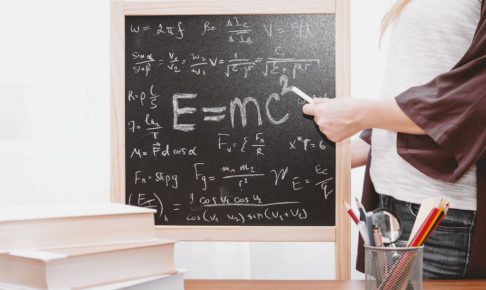英語
高校生
英語 高3
先生のメモ付きで見ずらくてすみません💦
・公共のガス灯は1800〜1807年間まで無かった
・鳴鳥や海鳥は落ちるまで旋回する
・毎年何十万もの(産まれたばかりの)
ウミガメが海で迷子になる
・闇は仕事上は必要ないけど生活に
置いては光と同様に必要
・自宅周辺の明るさが
女性の乳がんになるリスクと直結する
自分で読んで読み取ってみましたが間違って解釈しているかもしれないので教えて欲しいです
Lesson 12 Light Pollution
Class
Name
(1) If humans were truly at home under the light of the moon and stars, we would live in
くつろぐ
darkness happily. The midnight world would be as visible to us as it is to the vast number of
No.
nocturnal species on this planet. Instead, we are diurnal creatures, with eyes adapted to living in
the sun's light. This is a basic evolutionary fact, even though most of us don't think of ourselves
as diurnal beings any more than we think of ourselves as mammals. Yet it's the only way to
explain what we've done to the night; we've engineered it by filling it with light so that we can
へように
be active at night.
(2) This kind of engineering is similar to damming a river. Its benefits come with consequences
に伴って起こる
結果
- called light pollution - the effects of which scientists are only now beginning to study. Light
pollution is largely the result of bad lighting design, which allows artificial light to shine outward
人工的な
and upward into the sky instead of focusing it downward. Badly designed lighting washes out the
darkness of night and greatly alters the light levels and light rhythms, to which many forms of
life, including humans, have adapted Wherever human light shines out into the natural world,
some aspect of life, whether it is migration, breeding or feeding, is affected.
whether A or B· A=·AD3B78332
(3) For most of human history, the phrase "light pollution" would have made no sense. Imagine
walking toward London on a moonlit night around 1800, when it was Earth's largest city. Nearly
ほとんど
a million people lived there with candles, torches, and lanterns. Only a few houses were lit by
gas, and there would be no public gaslights in the streets or squares for another seven years. From
広島 (前) さらに
a few miles away, you would have been as likely to smell London as to see its faint collective
glow.
集まっている様子
(4) Now most humans live under domes of reflected light: of scattering rays from cities and
suburbs with too much lighting, and from light-flooded highways and factories. Nearly all of
nighttime Europe is a nebula of light, as is most of the United States and all of Japan. In the south
Atlantic the glow from a single group of fishing boats squid fishermen attracting prey with
大西
high brightness lamps can be seen from space, burning brighter, in fact, than Buenos Aires or
Rio de Janeiro.
(5) We've lit up the night, forgetting that it is occupied by many different living species. The
number of nocturnal mammal species alone is astonishing. Light is a powerful biological force,
and on many species it acts as a magnet. The effect of light is so powerful that scientists speak of
So that. 27 ~ GAT
songbirds and seabirds being "captured" by searchlights on land or by the light from gas flames
on marine oil platforms, thousands of them circling until they drop. Migrating at night, birds
often crash violently into brightly lit tall buildings. Young birds on their first journey are the
worst affected.
(6) Nesting sea turtles, which naturally prefer dark beaches, find fewer and fewer beaches to
~を好む
nest on. Newborn sea turtles find themselves confused by artificial lighting as they make their
way toward brighter, more reflective sea horizons. The loss to this species in Florida alone is in
損失
the hundreds of thousands every year. Frogs and toads living near brightly lit highways suffer
from the light levels at night, which are as much as a million times higher than normal. This
alters nearly every aspect of their behavior, including their nighttime breeding choruses.
= change
15 10
繁殖する
側面
(7) Unlike turtles, most of us do not need the night sky for our work. But like most other
creatures, we do need darkness. Darkness is as essential as light itself to our biological welfare, to
fa.
our body clock. The regular cycle of waking and sleeping in our lives one of our biological
規則的な
rhythms is nothing less than a biological expression of regular cycle of light on Earth.
fundamental are these rhythms to our being that altering them is like altering gravity.
実力
(8) For the past century or so, we've been performing an open-ended experiment on ourselves,
実験
過去の
~かそこらの
extending the day, shortening the night, and cutting the human body's sensitive response to light.
The consequences of our bright new world are more easily seen in less adaptable creatures living
適応力のある
= result
at the edges of our artificially lightened world. But for humans, too, light pollution may take a
biological sacrifice. At least one new study has suggested a direct relationship between higher
rates of breast cancer in women and the nighttime brightness of their neighborhoods.
(9) In the end, humans are no less trapped by light pollution than the frogs in a pond near a
捕らえる
brightly lit highway. Living in a bright light of our own making, we have cut ourselves off from
切り離す
our evolutionary and cultural history, the light of the stars and the rhythms of day and night. In a
very real sense, light pollution causes us to lose sight of our true place in the universe. It causes
us to forget the scale of our being, which is best measured against the size of a deep night under
the Milky Way.
宇宙
no less A than B = BY AKAR"
Bに劣らずAだ
回答
まだ回答がありません。
疑問は解決しましたか?
この質問を見ている人は
こちらの質問も見ています😉
おすすめノート
総合英語be まとめ(1)
13976
161
【総合英語フォレスト】まとめ(4)分詞/比較
9541
155
【総合英語フォレスト】まとめ(1)動詞と文型/動詞と時制
6496
29
総合英語be まとめ(3)
6086
41
【総合英語フォレスト】まとめ(2)完了形/助動詞
5197
14
英語表現 II ~Clearおすすめ関係詞~
1574
18
英文法•語法【マーカー対応】
841
4
英文法まとめNO.2 時制(1)
641
0
英文法まとめNO.8 分詞
602
3






















